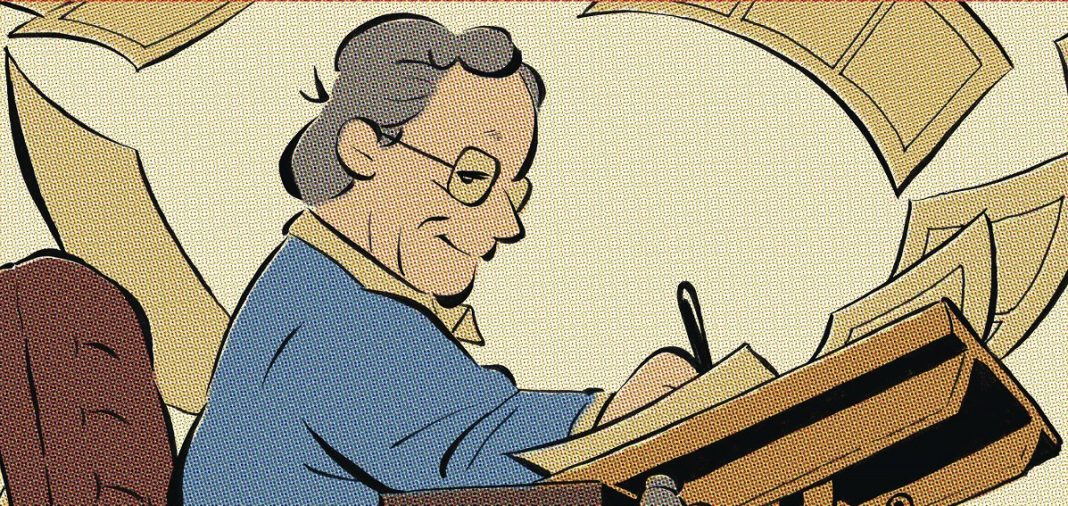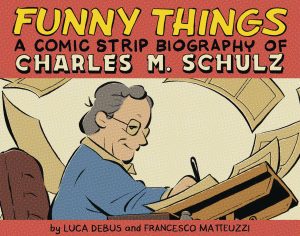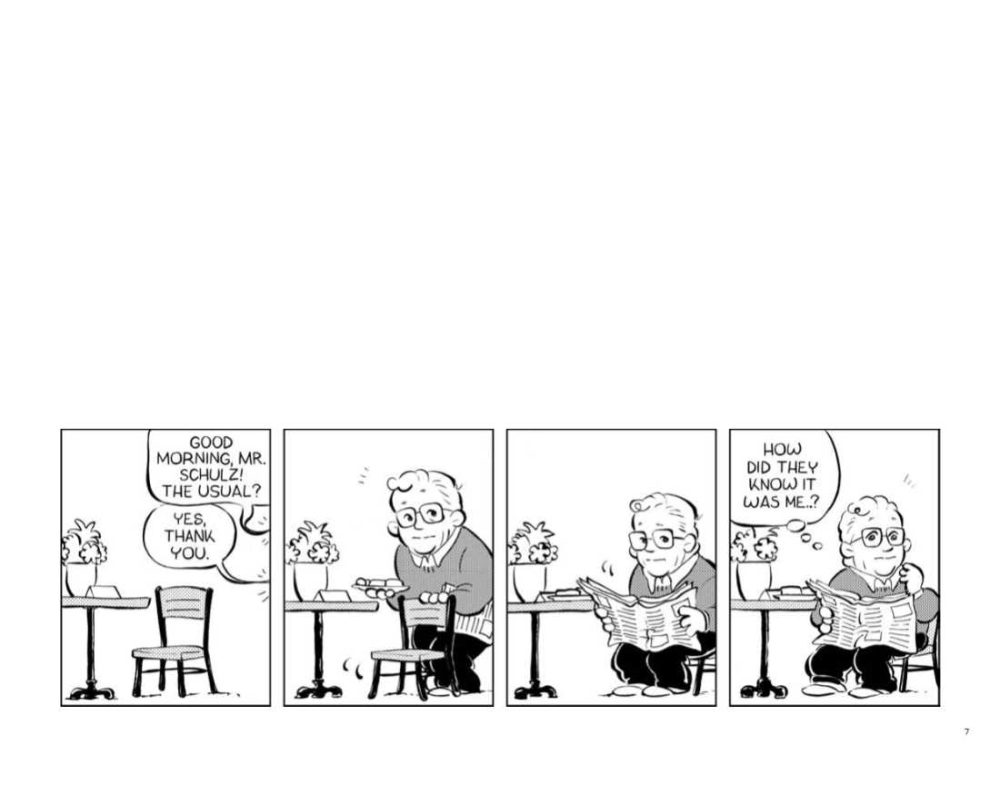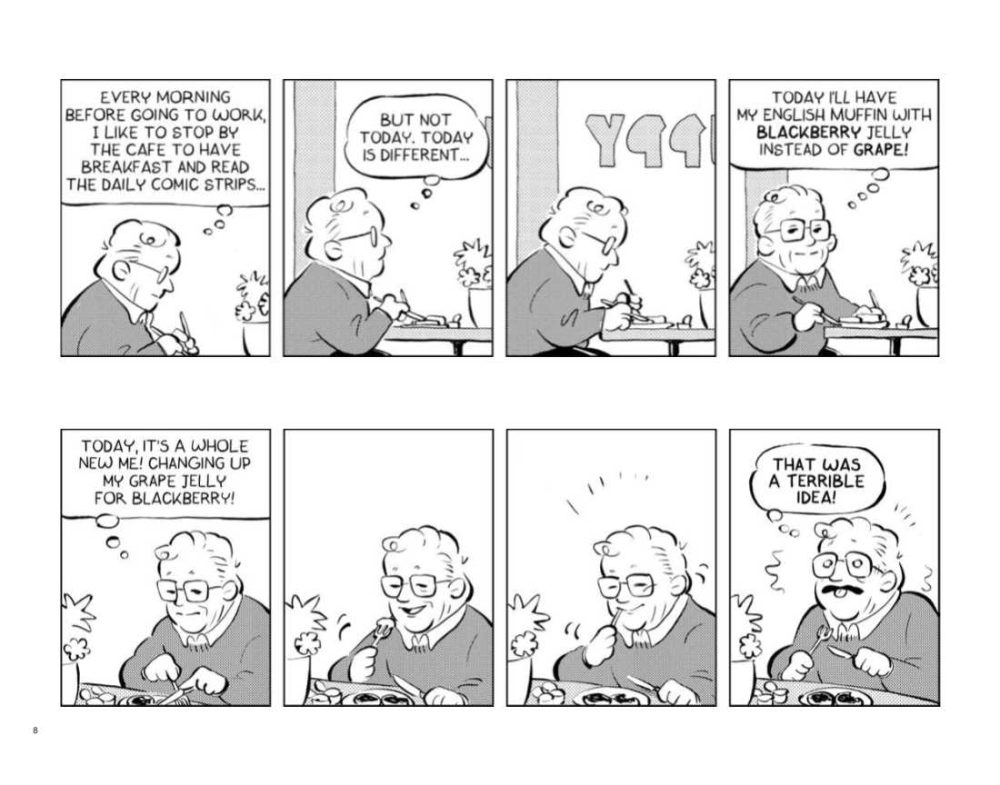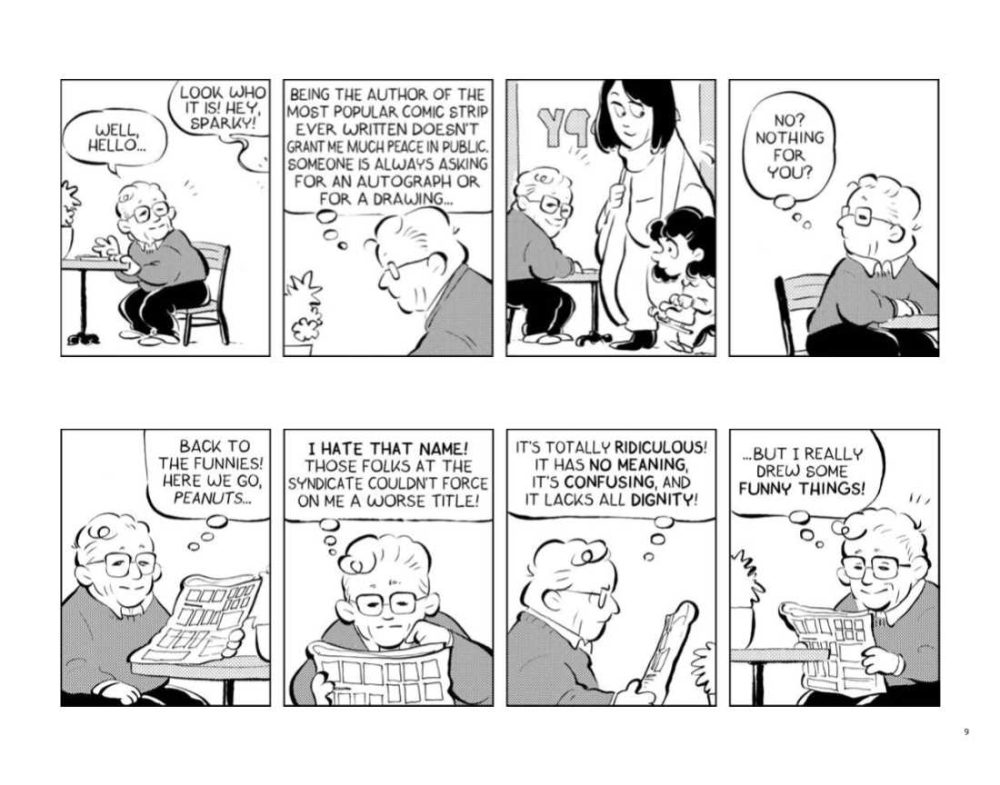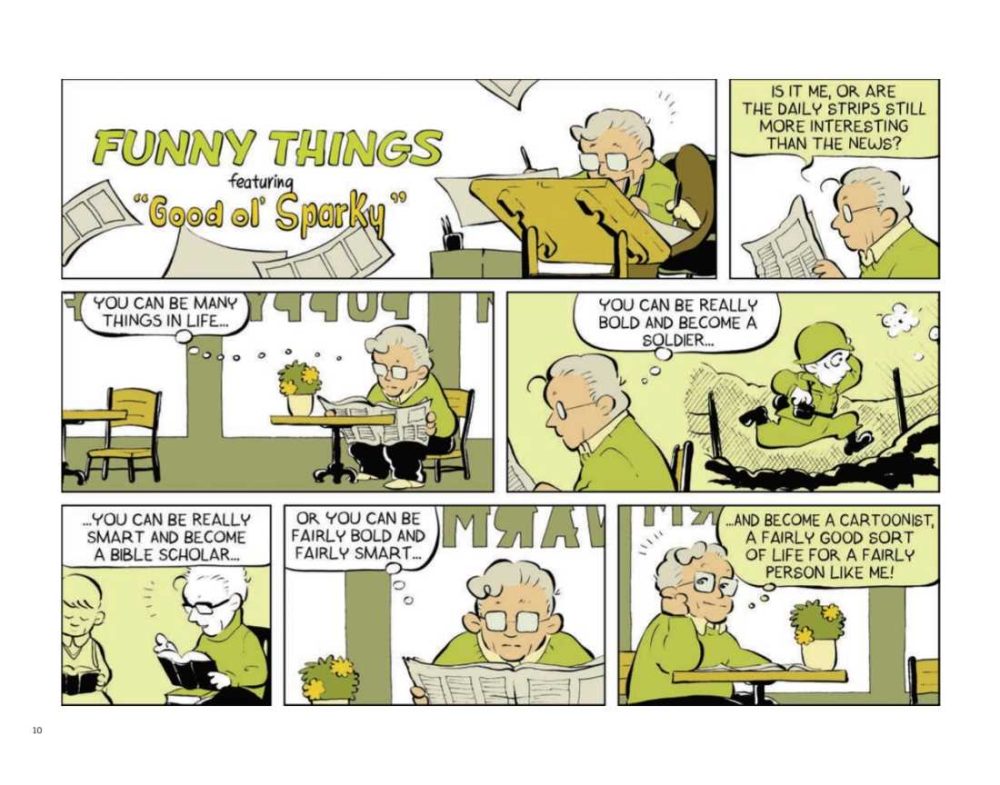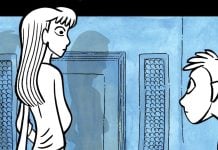 FUNNY THINGS: A COMIC STRIP BIOGRAPHY OF CHARLES M. SCHULZ
FUNNY THINGS: A COMIC STRIP BIOGRAPHY OF CHARLES M. SCHULZ
Writer: Luca Debus and Francesco Matteuzzi
Artist: Luca Debus
Publisher: Top Shelf Productions
Publication Date: August 29, 2023
Peanuts is an acute mix of the innocent, nostalgic remembrances of childhood while also possessing a pointed, almost nihilistic, critique of the world around us. There is a power to the strip that I have not seen replicated by any other cartoonist. I often find myself getting emotional thinking about Peanuts regardless of the context because of how fully it seems to capture all the nuances of daily life.
I would argue Peanuts in particular, but the comic strip format in general, has a Sisyphean quality. In Luca Debus and Francesco Matteuzzi’s Funny Things: A Comic Strip Biography of Charles M. Schulz, this quality is brought to the forefront. In the comic, Schulz reminds us that “A cartoonist is someone who has to draw the same thing day after day without repeating themselves” which provides the fundamental thesis of how the comic examines his life, but also speaks directly to how that is conveyed in the structure of comic strips. The condition of the newspaper cartoonist is to produce daily strips, confined to the same panel structure used for print, over and over again. As characters are designed and jokes discovered, these elements operate on a tricky balance of always needing to be repeated but trying to avoid getting stale. The brilliance of Peanuts was often in its ability to turn that structural necessity into part of the text. Lucy holds the football for Charlie Brown, and she always pulls it away at the last second before he can kick it. This never changes, and yet Charlie Brown falls for it over and over again. Like Sisyphus, one must imagine Charlie Brown happy.
Debus and Matteuzzi’s Funny Things is broken up into a series of more than 700 individual comic strips that replicate both the daily and the Sunday comic format to chronicle the life of Schulz. From the onset, Schulz is on a quest to become a daily comic strip cartoonist. The strip is then animated by the idea of the repetitions of life, of routines and consistency that help us understand who we are. Not only does the comic strip format repeat, but Schulz himself is depicted as moving from one routine to the next. The comic spends time going over the Peanuts-esque daily activity of school before transitioning to the army during World War II, the subsequent struggle of comic submissions and rejects, and finally the constant output of new strips.
Debus and Matteuzzi are able to capture the natural rhythm of a Peanuts comic to an astounding degree. Debus’ art adheres closely to the models of Schulz himself but not to the point of imitation. Rather, there is clear reverence and homage to how Schulz drew his characters and environments without ever repeating verbatim Peanuts strips. Every punchline feels like a well oiled machine of rhythmic cartooning, taking full advantage of how the daily newspaper format allows for natural joke structure with setups and payoffs.
However, because this is a biography at heart, there is a level of continuity between strips that progress through Schulz’s life. One can certainly appreciate the book as simply a series of daily strips to read slowly over the course of a few weeks. But they work just as well on the level of a graphic novel, moving from strip to strip with continued challenges and thematic exploration without ever compromising the universal appeal and humor of an individual strip.
By necessity, this universality does get a bit lost towards the very end of the comic. Once we arrive at Schulz’s battle with cancer, there is a certain level of philosophical musing prompted by hindsight that requires a prolonged reading experience with each individual strip operating as a step towards the inevitable end. However, that does not hurt the experience overall. The final moments are a capstone, reflecting on and pulling together the lessons of all the previous individual strips to examine the legacy of Peanuts and Schulz at large. It is a touching tribute that feels almost like a conversation between the cartoonists and Schulz himself.
As Schulz nears the end, he says “There’s a sort of comfort in having a duty.” At first difficulties like the army, submitting cartoons and getting rejected, or even creating a constant daily output of strips is difficult, even terrifying. However, as these actions become routines, they make us stronger, they help tell us who we are. In his final days, Schulz contemplates who he is anymore without the ability to cartoon, without the steady routines that defined his very existence on and off the page.
Seeing many people’s childhood hero say he isn’t sure if his life matters is undoubtedly heavy, but handled with love and care. Debus and Matteuzzi are here using the format of this biography to its greatest heights, transforming the fun and informative individual strips into eternal messages about the nature of existence itself. The weight of the existential crisis Schulz feels is allowed to linger and be answered in a way that feels true to the medium of a comic strip.
But of course, as the comic reminds us, “the most affectionate love is the one with a punchline.” Peanuts comes alive in not only the angst, but in the fun and wit with which these concerns are interrogated. Sometimes Charlie Brown’s pain is funny because life and tragedy can be funny. Funny Things is a constant barrage of great one-liners and engaging humor. Visual gags are present, but the focus is primarily on the dialogue and repetition. Just as much as Schulz’s life is presented in and defined by constant repetition, the comic makes a point to poke fun at his creature-of-habit mentality and need for total control over his strip. Even his near constant moving away from and returning to Minnesota is played for laughs just as much as it feels endearing.
The best Peanuts strips always felt like ordinary life. The struggles of Snoopy trying to be a writer, the longing Charlie Brown felt for the red-haired girl, or the obsession with which Schroeder played his toy piano. All of these eternal conflicts and charms are alive in Funny Things. From the sentimental to the bittersweet, Funny Things is a powerful tribute to Schulz, taking on a massive challenge to replicate Peanut’s structure without merely repeating the strips we all know so well. At every level, Debus and Matteuzzi succeed at presenting us with a biography that is richly informative and comforting, making it an essential work that deserves to be placed on the shelf next to any volume of Peanuts.
Final Verdict: BUY
Check The Beat’s review section for a new graphic novel review every Friday in 2023! And make sure to read TRADE RATING each Thursday for a review of collected material!
Funny Things is available now!


